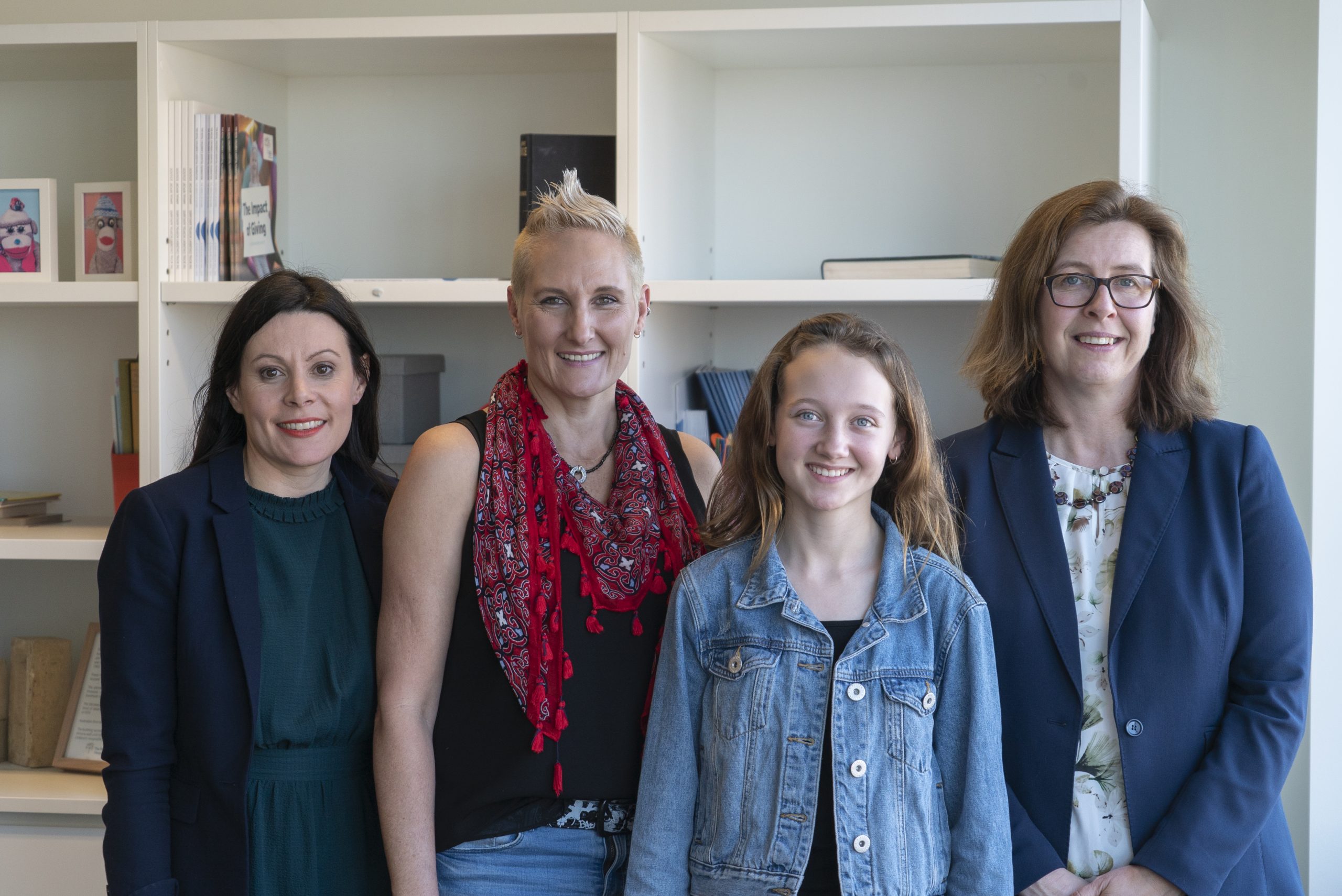Learning to embrace life with a stutter
Study participant Sian Williams, 13, shares her experiences of growing up with a stutter.
I was five when my teacher told my parents that she thought I might have a stutter.
They took me to have a test done where I was given a book to read out loud. Every time I stuttered, stumbled on my words or hesitated a lot, a lady pressed a button that counted my ‘bumps’. In the end, my stutter was ranked from one to 10. One was little to no stutter, and 10 meant I had an extreme stutter. I got 13.5. I didn’t understand why I spoke funny and why I have this. I was baffled and didn’t know how to move on.

Struggling and stumbling
I would run to my room every day after school when I was six and start crying my eyes out. I would pray to God to take my voice away as I couldn’t take the bullying anymore.
My stutter has had a massive impact on my life. Both negatively and positively. When I found out I had a stutter, I didn’t understand what it was and why I spoke differently to the other kids in my class. I got badly bullied. Even though I don’t get bullied as often anymore, I am still affected by the bullying.
I didn’t understand at the time why kids could be so horrible; I didn’t create or want my stutter. Despite all this, I reassured myself, with the help of my parents, that I could get through this. I began to understand that I couldn’t help my stutter, so I decided to embrace it.
I never wanted to talk, so my mum and dad gently pushed me into communicating with people by paying the bill at restaurants or talking to the cashier at the shops. Slowly but surely, I built up my confidence and began to accept who I am, and that I stutter.
Overcoming the obstacles
This experience has been challenging. Luckily, I have the support of my parents, friends and teachers. After many years, I started to realise why most kids, and even some adults, bullied me. These people didn’t understand what a stutter was and why I struggle to get my words out. Some thought I was making a joke, and others felt uncomfortable, so they didn’t know if they should laugh or just ignore. I decided to tell the people who bully me that I have a stutter. If they didn’t know what a stutter was, I would explain to them what it is and that I can’t help it. Once you explain your situation, they hopefully begin to understand and realise why they shouldn’t bully you.
Kids who are bullied for stuttering should try to be confident. I know it isn’t easy, but confidence is key. Start off slowly by asking the cashier at the shops how they are, don’t be afraid to ask questions in class and, most importantly: don’t be afraid to stand up to people who bully you or others.
Wouldn’t change a thing

I think a lot about what would life be like if I didn’t have a stutter? Would it be easier? Would I still have started Kidzucate (a website to help kids who are bullied)? Then I think about all the people I have helped over the years and will continue helping.
So, if I had the choice, I would not have my stutter taken away. I believe my stutter has shaped who I am and is the reason I advocate so strongly against bullying. My experiences have impacted how I see the world and how I believe we should act towards other people.
Communicating with those who have a stutter
Not many people, especially children, have met or talked to a person that stutters. When they do, they might not know what a stutter is and why we talk differently. My suggestion is, if you are unsure, ask. It is much better to understand what is going on than to feel uncomfortable.
Try to avoid finishing our sentences. Even though you feel like you may be helping us, we know what we want to say. It might be automatic, but for the person with the stutter, it can feel like you’re judging us.
Try to avoid laughing or making jokes if you feel uncomfortable. This can make the person with the stutter very anxious and unmotivated. When you meet with a person with a stutter, the best thing to do is listen and be there for us.
A new national study is helping to find the genes linked to stuttering
This study is something I have been waiting for since I found out I had a stutter. There are many reasons for what stuttering is; I want to understand what caused this and how it all works. Once people who stutter understand why they stutter, I feel they will begin to accept who they are and others without a stutter will too.
This article first appeared on the Murdoch Children's Research Institute's Media blog, June 1st 2020.
